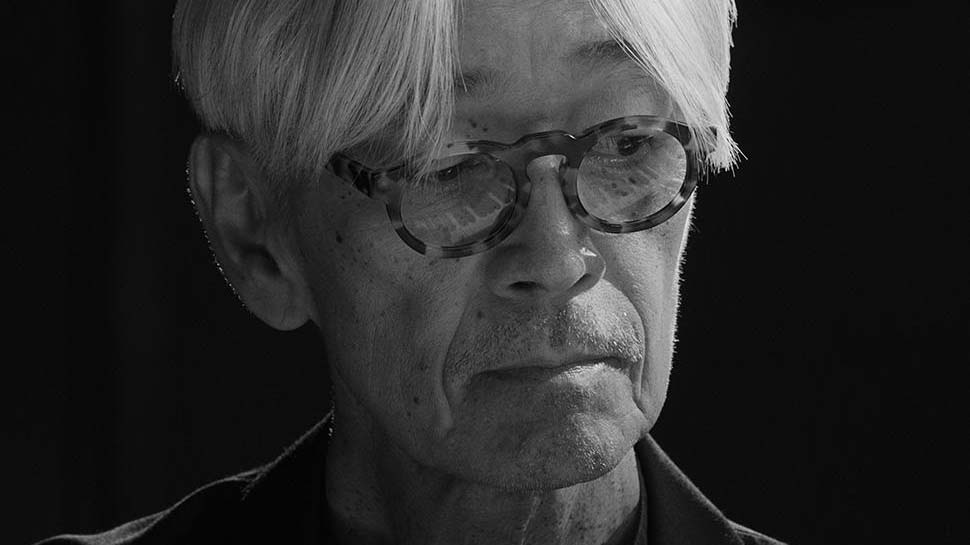

Sakamoto’s discography is immense. It is easily enough to summarize it in phases, following his ability to express his incredible musical talent in forms and context the most diverse: his youth (1970s and 1980s) with the Yellow Magic Orchestra, a Japanese band that contends with Kraftwerk the title of godfathers of electronic music, followed by a solo career that saw Sakamoto navigate the waters of sophisticated pop, ambient music, urban world music, and the world of film score. With some of his work for cinema (Nagisa Oshima’s Furyo), Sakamoto became world-famous, and won an Oscar in 1987 for his work on Bertolucci’s The Last Emperor. We are talking about a composer who, in his best years, would release four, five records, observing an innate calling for goal-oriented work and his omnivore curiosity and a penchant for change. The way he expressed his talents was in music that was supposed to be confined in a given space, in a mutual, tensive dimension of sound and environment.

Ryūichi Sakamoto has been one of the most meaningful composers of the twentieth century. An artist of a wide range of interests and of omnivore curiosity, Sakamoto authored legendary compositions for cinema: he worked with Bertolucci in “The Last Emperor” and R...
In Sakamoto’s music, there’s gentility, there’s a layer of subtle humour, there’s an attempt to capture beauty using balance of form, never deformation. His music never feels forced; it is always balanced, melody and sweet noise, East and West, digital and acoustic. Far be it from me to turn Ryuichi Sakamoto into a new age guru, whose eclecticism absorbs all differences into the angel-like beauty of his music. Since day one, the times of the Yellow Magic Orchestra, Sakamoto has been an innovator, an artist who refused orthodoxy altogether. He innovated in music, yes, and he was an activist. His last public commitment took place in March 2023, when he wrote a letter to the governor of Tokyo to contest a decision of cutting trees in one of the city’s neighbourhoods. Slowly but surely until the very end.
A priceless record in its vocation to testify the artificiality of the sound of those years, as well as of something that is proper to humanity itself.
For his second solo album, Sakamoto composed a seminal piece, a cornerstone in the evolution of hip-hop and electronic music in the 1980s (just ask Aphex Twin…)
We would be humbled to list the soundtrack for Furyo, which in 1983 earned Sakamoto the world’s gratitude. The work he made for this film is just as much a masterpiece, all played on velvety strings caressing the drifting voyage into the heart of Africa.
Sakamoto’s world music is simple and sophisticated at once. It innovates with levity, always goes beyond the fashionable trend, and always keeps this side of the mainstream.
Dolce minimalismo acustico ci ha regalato la ricorrente collaborazione di Sakamoto con i coniugi Paula e Jacques Morelenbaum, musicisti brasiliani a lungo nel gruppo di Antonio Carlos Jobim.
«Quante altre volte guarderai sorgere la luna piena?». Le parole con cui finiva Il tè nel deserto trent’anni dopo vengono riprese nel disco realizzato dopo l’inizio della malattia; un impavido riassunto della sua vita sonora.